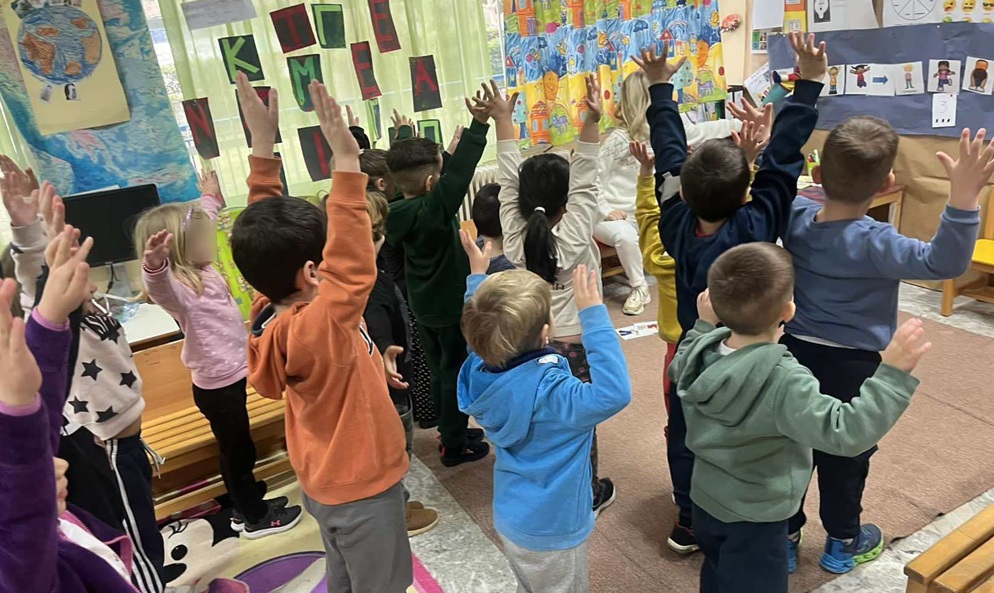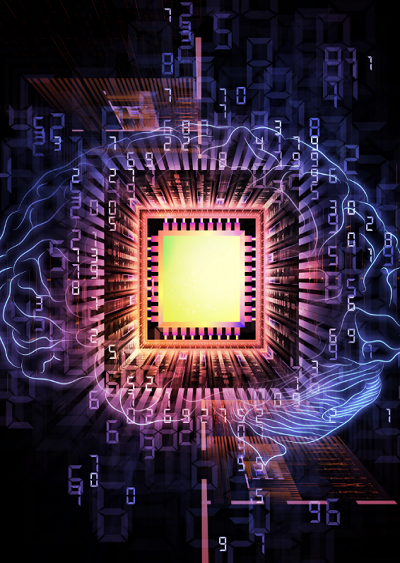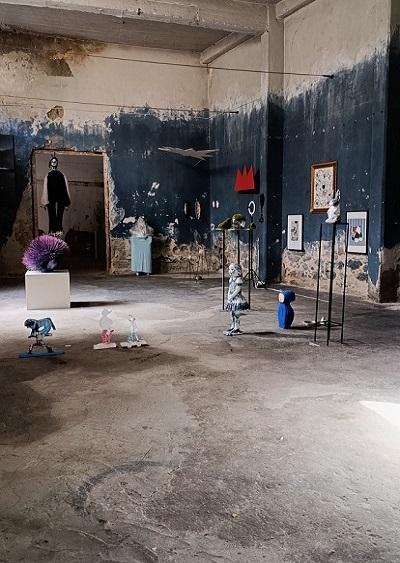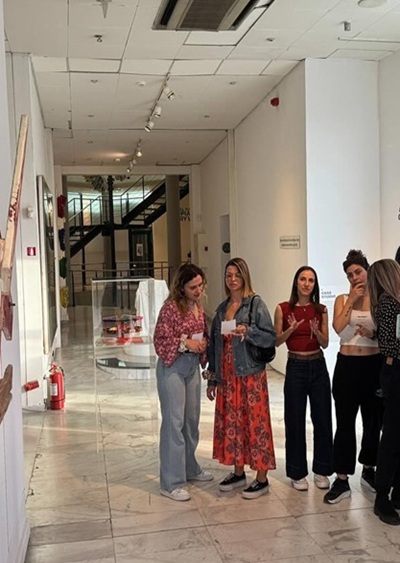
“Tangible Interfaces in Kindergarten and Educational Robots” (“TINKER: Tangible INterfaces in Kindergarten and Educational Robots”) is the title of the research project that the research team, under the supervision of Associate Professor Theodosios Sapounidis from the School of Philosophy and Education at Aristotle University, will present online on Wednesday, November 19, 2025, at 19:00.
Can kindergarten children develop skills through Educational Robotics?
The research project of the School of Philosophy and Education at Aristotle University shows that, through the educational robots BeeBot and DuckyCode, young learners aged 4–6 can develop Motor Creativity, 4Cs skills (Communication, Collaboration, Critical Thinking, Creativity), and Computational Thinking in an interactive way that combines technology with experiential and inquiry-based learning.
The Hellenic Foundation for Research and Innovation (ELIDEK) and the European Union funded this basic research project. The project was implemented experimentally in public kindergartens in Rhodope (2nd and 10th Kindergarten of Komotini, 15th Experimental Kindergarten of Komotini), Eastern Thessaloniki (Kindergarten of Agia Paraskevi), and Halkidiki (1st and 4th Kindergarten of Nea Kallikrateia), and is expected to be completed by December 2025.
The three-year project aimed to explore whether kindergarten children can develop holistically and to support them in cultivating essential 21st-century skills, enriching traditional teaching methods with innovative technological tools. For this purpose, the team designed a teaching program of 24 activities of various types: unplugged (without robots), plugged (with robots), and embodied (kinesthetic) activities that place the child at the center of learning. During the project, the team used two different educational robots in both small groups of 3–5 children and in full-class settings.
During the lessons, the children gradually familiarized themselves with basic programming principles through Educational Robotics, role-playing, and kinesthetic activities. Then, they freely experimented with the robots to discover their features. Later, they took part in programming challenges based on problem-solving related to their daily routines and interests, with tasks becoming progressively more complex. Finally, they evaluated their robotics experience and presented what they had learned to their peers, parents, and teachers.
Doctoral candidates Soultana Tsingidou and Sofia Rapti carried out the research in collaboration with Dr. Despina Ourda, under the supervision of Associate Professor Theodosios Sapounidis.
According to the project contributors, the research demonstrates that the use of Educational Robotics can significantly enhance young children’s learning experience, strengthening skills such as Motor Creativity, Computational Thinking, and the 4Cs.
The educational robots used were BeeBot and DuckyCode. BeeBot is now found in almost all Greek kindergartens, while the DuckyCode system was developed by the DuckyCode spin-off company of Aristotle University. It functions as a hybrid platform for Educational Robotics and programming.
The public can attend the event via the ZOOM platform by scanning the special QR code on the poster.
Attached are the event poster and photos from the TINKER program’s activities.







Leave A Comment